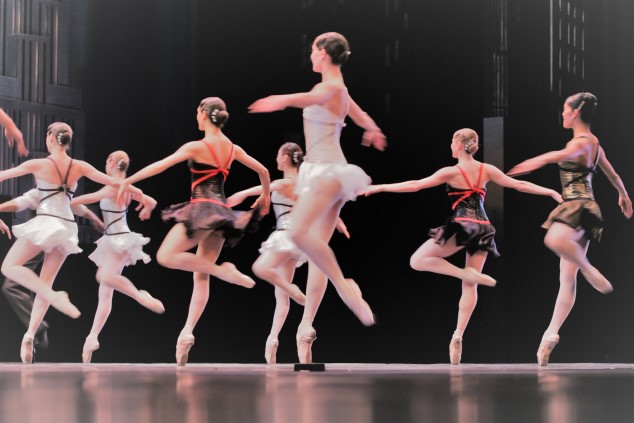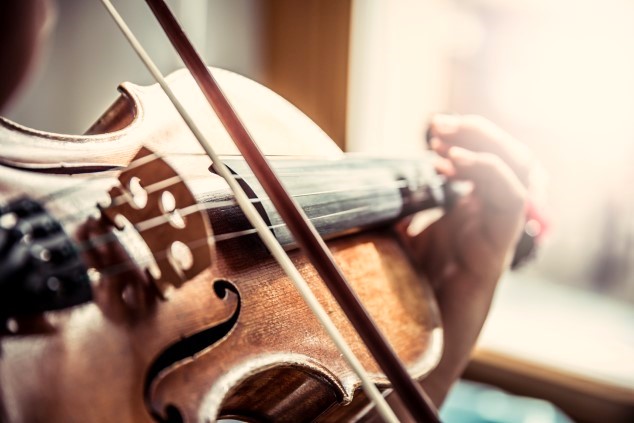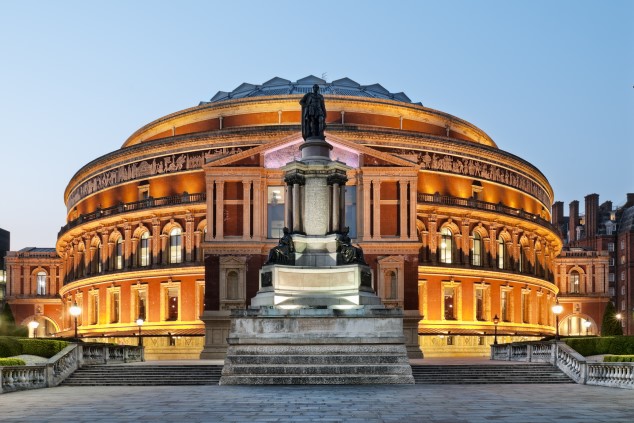In the series “Off Duty”, various members of the InterNations team share their personal stories about their global lifestyle and international experience.
For this article, we’ve talked to Sherif, who organizes activities for the InterNations Munich Classical Music Group.

Can you tell us a bit about yourself? Where do you come from? And what do you do at InterNations?
I’m one of the software engineers, who develop and test new features for our platform. I work in frontend development, the more visual part of engineering that allows our users to view and interact with the graphical interface. I’m part of Ariel’s PXT (Product Experience Team). We are responsible for everything directly or indirectly related to the InterNations Official Events and Activities. Recently, supporting the newly introduced online events and activities has been the core of our work.
I grew up in Alexandria, Egypt, where I also attended university — and where I’ve attended a lot of classical concerts. In 2017, a few years after graduating, I moved to Jeddah, Saudi Arabia, where I lived and worked as a software engineer for six months. Obviously — and unfortunately — there were no opportunities to attend any live music performances there. Then, I relocated to Malaysia to work as a web developer in Selangor, about a twenty-minute drive from Kuala Lumpur. Finally, I came to Munich in March 2019. My new job at InterNations was my reason for moving here. I’d never even been to Germany before.

You just mentioned how important live music performances are to you. How did you become an InterNations Consul to share your interest in classical music with our members?
I became a Consul of the Munich Classical Music Group about a year ago, in July 2019. I had just returned from our team trip to Sicily, where I’d listened to a presentation about team members getting actively involved in our community. This got me thinking — in engineering, we build the InterNations platform, we maintain the website and the app, and everything we do we do for our users, but we don’t really contribute to what’s going on locally. So, I was gathering some ideas for creating my own InterNations Group.
But then I got the message that the Classical Music Group was looking for a replacement for one of their Consuls at the time, who was planning on stepping down. And I have this huge passion for classical music; even though I didn’t really know anything about where to attend concerts and performances in Munich, except for the Bavarian State Opera, I thought this would be my best chance of figuring it all out.
Now, we are a small team of several InterNations Consuls who host regular get-togethers for the members of our group. We usually meet in person at least once a month to coordinate what we’re planning next. The most common activity we offer is attending a live performance at one of the concert halls, theaters, or opera houses in Munich.
You’ve definitely moved to the right city then. I mean, there’s the State Opera, the Gärtnerplatz Theater, the Munich Philharmonic Orchestra. . .
Definitely. So far, I have attended more concerts during my time in Munich than I ever did in the same period before in any other place where I lived. This is mainly thanks to my InterNations Group. We could probably organize even more activities, but I don’t think most people would attend more than maybe two concerts a month, on average. So, we focus on high-quality events rather than on aggressively posting a lot. Additionally, you’ll see that there are also quite a few active members of the group who create activities and invite others as well.

What’s a typical activity like in your group?
Usually, about ten or twelve people will sign up for an upcoming activity to express their interest, but the actual number of attendees is generally a bit lower. Maybe half a dozen people will make it there. Actually, that’s a lot better than it might sound because it makes the seating arrangements easier to control. Whenever possible, we try to book seats that are next to, or at least close to, each other, which would be much harder if a big crowd showed up to the event.
We just want our members to have a good time. This is also the reason why there are always two Consuls at every activity: one to look out for newly arrived attendees, and one to stay with the rest of the group and keep them entertained before the performance starts. And we also combine the concert with another activity, mostly drinks or dinner afterwards.
How many activities have you hosted or co-hosted so far? And do you have any favorite venues to go to after a concert?
About five, I think. For example, there was a ballet version of Anna Karenina, based on the famous novel by Tolstoy, with music by Rachmaninov and other composers. This has been my personal favorite so far. I also went to see another ballet performance, Romeo and Juliet by Prokofiev, as well as a Christmas concert with seasonal choral music in German and English at the Nymphenburg Palace. Melody from our Community Engagement Team shares my passion for classical music, and so we went there together.
As for my favorite venue, that’s probably Spatenhaus an der Oper. It’s an upscale traditional restaurant with a cool seating arrangement. The first floor looks more casual and down-to-earth, while the upstairs is very fancy and elegant. I love it, but I don’t go there as often as I would like to — it’s not exactly low-budget! I really like their food, though. They specialize in typical Bavarian cuisine, and I just love Bavarian food in general. Knödel (dumplings), for example. If I can get the potato version and the bread version on the same plate, I’ll be very happy!

You just said you went to a Christmas-carol concert with another InterNations team member. Do you have many co-workers or friends who share your taste in music?
Not many, no. However, Marc — one of our Software Engineering Team Leads — has recently started asking me for recommendations for getting into classical music. And John, another frontend developer, regularly practices several instruments and has great taste in music in general, including classical pieces. Once, I found him listening to “Rêverie” by Debussy — I recognized the tune immediately, and that’s when I knew there was at least one other person to talk classical music with at the InterNations office.
In my experience, it’s generally rare to meet other people who are really interested in this kind of music, especially in my age group. I’m 29, and I’m the only one in my personal circle of friends who likes it. Among young people in their 20s, the interest is almost non-existent. Sometimes, you might even get some weird looks for bringing it up. Other people may not see the point of something you love very much, and this can be a bit disheartening. That’s why I love the Munich Classical Music Group. It’s good to be surrounded by others who share the same passion as you, and I’m very grateful to have this community.
How did you first become interested in classical music? Did you grow up playing an instrument?
No, and I’m also the only one in my family who has a penchant for classical music. Unfortunately, I don’t play an instrument either, though I’ve taught myself how to read notes and sheet music.
My interest started when I was in my late teens. I used to listen to a particular piece by Rimsky-Korsakov — his symphonic suite Scheherazade — over and over again. And then I said to myself, “Why not expand my scope a little bit and see what else there is to discover.” That’s how I started listening to other composers, such as Mozart, Vivaldi, Beethoven, and so on. It all began by hearing that one piece I was so attached to, and it just grew from there.

Do you have any other particular favorites — composers or compositions?
Rachmaninov is one of my “go-to composers”, so to speak. His piano music is just magnificent, like it’s from another world. And The Four Seasons by Vivaldi is one of my absolute all-time favorites. I’ve made a habit of attending a live performance every year, when I can. I think I’ve been to six of them so far. Coincidentally, The Four Seasons was also the last concert I attended in Munich, right before the coronavirus lockdown began in the spring.
Speaking of the lockdown measures, how has the COVID-19 pandemic affected your group?
Quite badly, to be honest. There haven’t been any activities in our group lately. Among the co-Consuls, we discussed hosting online activities instead, since lots of venues like the Bavarian State Opera have put recordings online or are livestreaming their performances. But our members didn’t seem particularly interested in that option.
Personally, I haven’t watched any online performances either. I just want to see a live event again — it’s what I enjoy the most. For example, when I was still living in Malaysia, I took on a trip to London and attended this amazing Christmas concert at the Royal Albert Hall. This is a massive venue, and it was completely packed. I don’t think there was a free seat left; people were standing everywhere, and everyone was singing along. I don’t think I’d ever experienced such an intense atmosphere!
I see why it wouldn’t be the same thing in front of a computer screen. So then, is the Munich Classical Music Group in hibernation mode now?
Yes, we simply decided to wait it out. We will be back once the opera houses and concert halls resume their programs, probably after the summer break. Right now, there’s one more activity in our group that’s still on hold: a concert in honor of Beethoven’s 250th birthday, which was originally supposed to take place in March but was rescheduled for December. Hopefully, everything will be back to normal by then, and our members will feel completely comfortable attending public indoor events. I’m just really looking forward to the venues opening their doors again!

Fingers crossed! To wrap up this interview, what would you recommend to someone like me, who doesn’t know much about classical music and isn’t sure where to begin?
The first thing I’d tell you is to figure out which instruments you prefer: For example, the flute or the harp? Do you like the piano better or the violin? And then the tempo is very important: some people want to listen to something slow and calm and have a moment of peace, while others want something very enthusiastic and energetic to motivate them. This would be a good place to help you start looking and then dig deeper. There’s a whole new world for you to discover! Classical music is simply an amazing thing to be interested in, and it has made my life so much better over the past ten years.
So, should we all start listening now and then join your activities in September?
Ideally, this would be the best kind of motivation!
Image credit: InterNations / iStockphoto